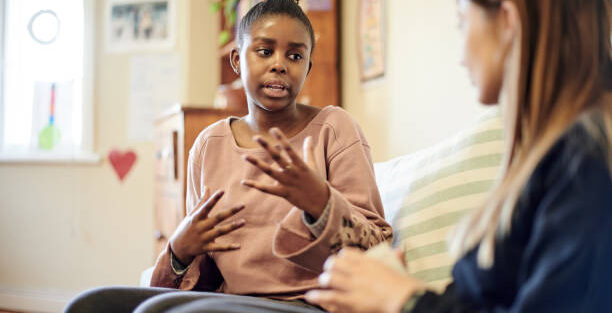The best insult I ever had from a young person is far too graphic to write here. But it was brilliant!
Brilliant because it eloquently focused on all the things he thought would hurt me most: my size, my accent and my job.
Anyone working with troubled young people will have had this happen. It’s part of the deal. So,…
How should we respond to verbal aggression?
Firstly, I think we should recognise that we each have our own style of working. Our personalities are reflected in our engagement with the kids we’re trying to help.
That said, there are some principles that can help us to best respond when they are verbally rejecting or aggressive.
What’s happening?
Here’s a quick summary of what’s going on:
– Communication – the young person is making contact with us. This is a good thing!
– Information – they are focused on us and they are letting us know something about them self.
– Emotion – there are strong feelings going on that have caused a particularly stark response
I know this is a little general. But it’s important to get the whole business into some kind of perspective before we begin thinking about how best to deal with it.
Thinking correctly now, whilst things are calm, will benefit us later when things get tricky.
My brains hurts…
The aggression isn’t personal. It’s rooted in the responses which have kept them safe and/or enabled them to cope whilst living in traumatic situations. Thinking of it as a reflex helps to put things into perspective.
Children raised in trauma, fear or threat struggle to recognise, understand and contain their feelings. The more logical, thoughtful and reflective functions of the left brain are overridden by the emotional surges and lack of control that years of problems have engendered.
Understanding that we can’t reason young people out of strong feelings or command them into obedience is a great first step towards resolving aggressive outbursts.
When logic and reason are overwhelmed by tension and emotion, something has to blow. And is has to blow out fully before talking can really help.
So what should we do?
Clearly we need to stay safe. This is a job remember. And though we may be passionate and committed, we have to protect ourselves first and foremost.
Assuming the necessary steps are in place for this, there are some things we can do to heighten our chances of a good outcome…
1. Remain steady – hold your nerve for a few seconds and take stock. Adopt a non-threatening posture and remain still. Remember that where you stand, how you look and the tone of your voice will be more persuasive than what you say!
2. Resist the witty retort – don’t react in kind. Not only would this be unprofessional, it could make things worse. Ridicule, sarcasm and whit won’t help and might just make things worse if they’re perceived as demeaning. Be respectful at all times.
3. Reflect the emotion – but without expressing actual emotion. Mirroring facial expressions of anger, for example, whilst keeping the voice animated but calm can help people in states of emotional agitation to feel that you “get it” – that you understand their predicament. This can defuse the emotional “push” behind their outburst.
4. Recognise what’s being said – and particularly the feelings behind it. What’s happening is very real for everyone, but particularly for the child or young person. Whilst they may well regret and apologise of the way they communicated, there may well be a kernel of truth that we need to hang on to for later consideration.
5. Re-state your aims – ensure that the young person knows you’re not put off by what’s happening. You’re in this for the long haul and you want to help. They may well feel a sense of shame afterwards when things have calmed. We need to be clear that we’re still the person we were before and still committed to their welfare.
6. Repair the break – when things go a bit pear-shaped like this, there’s a break in the relationship. We need to ensure this is repaired. The young person needs us to spend time with them and be the person we were before the outburst took place. this “return to normal” is a crucial step in moving them on and ensuring the episode leaves no negative residue on the relationship.




3 Comments
Riva Collins
It’s no secret that the digital industry is booming. From exciting startups to need ghor
global and brands, companies are reaching out.
Obila Doe
It’s no secret that the digital industry is booming. From exciting startups to need ghor hmiu
global and brands, companies are reaching out.
Riva Collins
It’s no secret that the digital industry is booming. From exciting startups to need ghor hmiu global and brands, companies are reaching out.